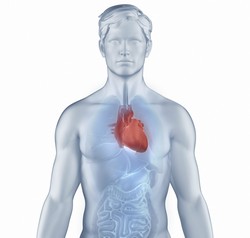Dilated cardiomyopathy - Insights at the molecular level
DCM is a life-threatening heart muscle disorder characterised by ventricular dilatation and systolic impairment. Disease prevalence is 1 in 2 500 adults and constitutes one of the leading causes of heart failure. DCM is the commonest cardiomyopathy in the paediatric population and an indication for cardiac transplantation in adolescents and adults. Current diagnosis and treatment of DCM rely solely on the clinical phenotype and do not account for the genetic basis of the disease. With this in mind, scientists on the EU-funded INHERITANCE (Integrated heart research in translational genetics of dilated cardiomyopathies in Europe) project wished to characterise the genetic basis of DCM and correlate it with phenotype data. They studied patients with laminopathies, a subtype of DCM caused by mutations in the gene encoding for the nuclear envelope protein, Lamin AC (LMNA). In these patients, disease occurs due to genetic haploinsufficiency that leads to decreased expression in affected hearts. Careful phenotyping led to the development of predictive models that identify patients who might benefit from prompt treatment. Overall, the phenotype and genotype information for cardiomyopathies was integrated in a novel classification system for cardiomyopathies that is freely available here(opens in new window). Using genome-wide association studies and animal models, the consortium identified novel disease pathways, candidate genes and pathophysiologic mechanisms of myocardial damage. In addition, they identified and characterised an atrial form of DCM caused by homozygous mutations of the NPPA gene. High-throughput gene sequencing performed in various European centres generated an atlas of mutations that could be used for gene-phenotype correlations. The large number of potentially pathogenic variants highlighted the complex genetic architecture of DCM and the need for further studies. At the same time, the observations of the INHERITANCE study underscored the importance of genetic testing as the primary step in the correct diagnosis of DCM.







